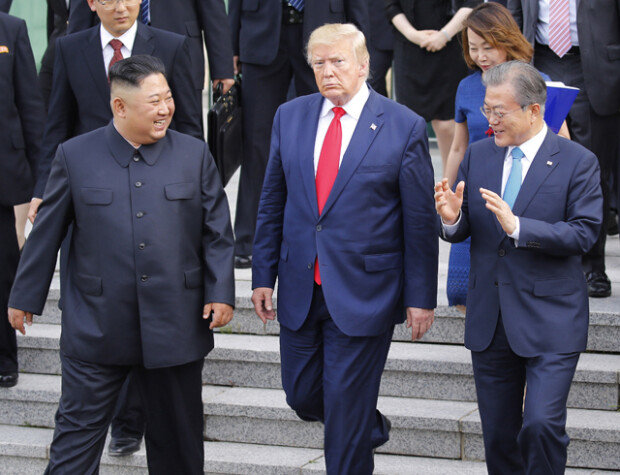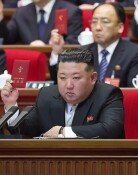Seoul, Washington fail to align on May 24 measures
Seoul, Washington fail to align on May 24 measures
Posted May. 22, 2020 07:52,
Updated May. 22, 2020 07:52

As the South Korean government has effectively announced to scrap the May 24 measures, a set of sanctions to be imposed on North Korea, relations between Seoul and Washington are growing frosty again.
“Inter-Korean cooperation must come in hand in hand with the progress towards denuclearization,” said the U.S. State Department, a day after the announcement was made, making it clear that easing on the sanctions is only possible when the North takes steps towards nuclear disarmament. However, Lim Jong-suk, the former chief of staff for Moon Jae-in who was deeply involved in the denuclearization process, predicted that President Moon will try to press ahead even in the face of some negative opinions (from Washington), should the U.S. and North Korea fail to make progress. In other words, the core leadership of the South Korean ruling party is intended to push for inter-Korean cooperation starting from the latter half of the year even if Washington opposes, provided that the denuclearization talks between the U.S. and North Korea fall short of fructifying.
In a commentary broadcast on Voice of America on Wednesday, an official from the State Department said that the U.S. supports inter-Korean cooperation and coordinates with South Korea to ensure their cooperation proceeds in lockstep with progress on denuclearization. With the effective scrapping of the May 24 measures, which were drawn up in the wake of the sinking of the South Korean Cheonan warship, Washington is showing no signs of alleviating the sanctions against Pyongyang.
By contrast, the ruling Democratic Party of Korea is voicing the need to take this as an opportunity to pursue inter-Korean cooperation independently. “In times like this, we cannot afford to wait for Kim Jong Un’s permission only,” said former Chief of Staff Lim Jong-suk in an interview with magazine Creation and Criticism, which was disclosed on Thursday. “President Moon said he is willing to meet Kim if needed. Now is the time to do just that.” As to the sanctions that have hitherto been led by Washington, Lim said the South must interpret the UN sanctions more proactively at a government level.
“The first order of business is to galvanize the public opinion of international community through proactive interpretation, and then go back to persuading Washington,” said Lim, claiming that America’s sanctions criteria make little sense. “This means that we need to do something instead of sitting on our hands and waiting for the talks to resume,” said an official from the ruling party. The diplomatic circles in South Korea speculate that the ruling party is exploiting the vacuum of Trump’s sway on the peninsula stemming from the upcoming U.S. presidential election in November to cling back on inter-Korean cooperation without achieving any meaningful progress towards denuclearization.
Sang-Jun Han alwaysj@donga.com







